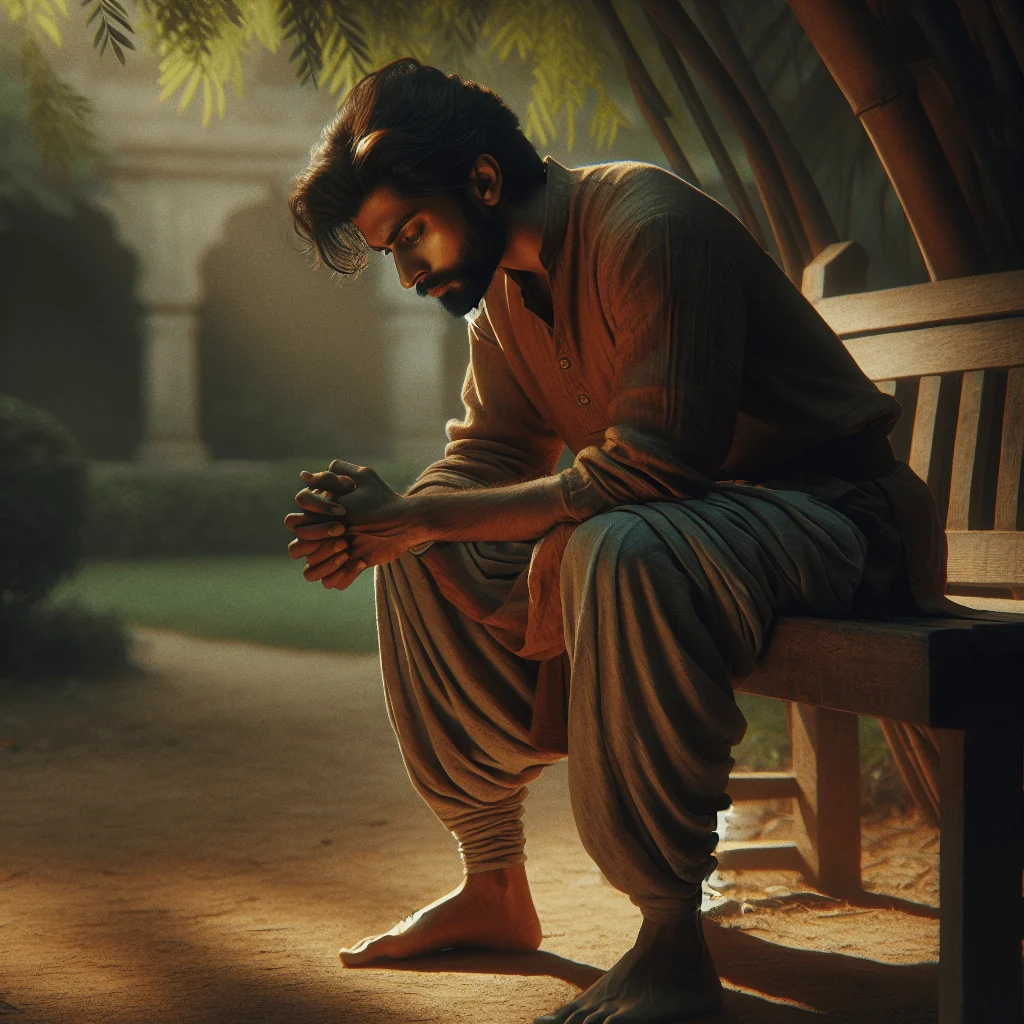Understanding the Difference Between Meditate and Ponder
In moments of quiet reflection, many people find themselves either meditating or pondering. While both actions involve turning inward, the difference between meditate and ponder is more than just semantics—it influences how we engage with our thoughts, emotions, and inner world. Understanding this distinction is essential for anyone looking to cultivate mindfulness, inner peace, or purposeful thinking.
If you’re just getting started on this journey and want a step-by-step path to daily mindfulness, check out our beginner-friendly resource: Everyday Calm: A Beginner’s Guide to Daily Meditation.

What Is Meditation?
The Art of Mindful Awareness
Meditation is a practice of being fully present and aware without judgment. Originating in ancient spiritual traditions such as Buddhism, Hinduism, and Taoism, meditation has been widely adopted around the globe for its mental, emotional, and even physical benefits. While there are many styles—from mindfulness to mantra-based techniques—the core element is fostering a sense of calm, intentional focus.
Most meditation techniques encourage less thinking and more observation. For example, when meditating, you might focus on your breath, a mantra, or even bodily sensations. Any thoughts that arise are observed without engaging, and then gently released.
For more nuanced advice, especially on specific methods like how to meditate with smoky quartz or should meditation be guided, we’ve got you covered.
Common Goals of Meditation
- Reducing stress and anxiety
- Increasing self-awareness
- Cultivating compassion and presence
- Enhancing focus and creativity
- Spiritual connection or enlightenment
What Does It Mean to Ponder?
The Depth of Active Thinking
To ponder means to think deeply, often about a question, idea, or situation. Unlike meditation, which emphasizes stillness and detachment from thought, pondering invites you to engage actively with your thinking. You evaluate, question, and sometimes analyze a problem or concept.
Let’s say you’re thinking about life choices, a personal relationship, or a philosophical idea. When you ponder, you’re mentally exploring the subject with intent to understand or decide something. It’s a form of intellectual inquiry, often fueled by curiosity or emotional need.
Contexts Where Pondering Is Useful
- Deciding between multiple life options
- Exploring abstract concepts or moral dilemmas
- Processing emotional experiences
- Generating new ideas or solutions
Many philosophers and writers, from Plato to Virginia Woolf, thrived on contemplation and pondering life’s deeper questions. While it’s largely cognitive and rational, pondering can also be emotional, providing a way to come to terms with past experiences.
Comparing Meditation and Pondering
Key Differences at a Glance
| Aspect | Meditation | Pondering |
|---|---|---|
| Primary Function | Observe without judgment | Analyze and explore thoughts |
| Mindset | Detached and accepting | Engaged and evaluative |
| Technique | Focus on breath, mantra, etc. | Mental exploration and analysis |
| Goal | Inner peace/present moment awareness | Understanding or problem-solving |
Both meditation and pondering have their place in personal growth. Meditation quiets the mind and nurtures inner balance; pondering sharpens critical thinking and self-reflection. Think of them as complementary—not competing—tools in your mental well-being toolkit.
Can These Practices Coexist?
A Harmonious Approach to Inner Work
Absolutely. In fact, integrating both meditation and pondering into your routine can be especially powerful. For example, many people begin their day with meditation to establish a centered mindset. Later, they might allow themselves time to ponder a challenge with a clear, unbiased perspective.
Some meditation styles even invite moments of contemplation. In Zen Buddhism, for instance, a practitioner might meditate on a koan—a thought-provoking question meant to transcend logical reasoning, encouraging insight beyond intellect.
When to Meditate vs. When to Ponder
It often comes down to intention. If you’re feeling overwhelmed or anxious, use meditation to reset and ground yourself. If you’re trying to make sense of something or weigh options, pondering may be more productive. The trick is knowing when you need silence and when you need mental exploration.
For further insight into meditative environments, read our guide on how to meditate in Kenya—the setting you choose can greatly affect the introspective journey.
How to Begin Both Practices
Simple Ways to Start Meditating
If meditation feels foreign, begin small. Even 5 minutes a day with closed eyes and focused breathing can make a difference. Gradually increase your session length as your capacity for silence grows. Tools like timers, guided meditations, and crystals (such as kyanite or smoky quartz) can also help.
Tips for Effective Pondering
To ponder well, find a quiet space and allocate time to think without distraction. Journaling your thoughts can help unravel deeper layers. Asking yourself open-ended questions—like “What truly matters to me right now?”—is a great starting point. Just avoid spiraling into overthinking.

Scientific Perspectives on Both Practices
Numerous studies support the benefits of meditation. According to the National Center for Biotechnology Information, regular meditation improves attention, reduces anxiety, and can even change brain structure over time.
While pondering hasn’t been researched as extensively, cognitive science does examine reflective thinking. Deep thinking activates areas of the prefrontal cortex related to decision-making and abstract thought. Both practices clearly engage different neural pathways, which may explain their unique benefits.
Conclusion: Embrace the Best of Both Worlds
The difference between meditate and ponder lies in their approach toward mental engagement. Meditation invites presence. Pondering invites exploration. Use them intentionally and listen to what your mind and soul need in each moment.
To enrich your self-development practices with tools that support both meditative stillness and constructive thinking, explore our transformational workbook: Manifest Your Dreams: A Practical Guide to the Law of Attraction.
Continue Your Journey
If this topic resonated with you, don’t miss our related categories like Mindfulness & Meditation or Spirituality & Inner Work for more insight into mindful living.

